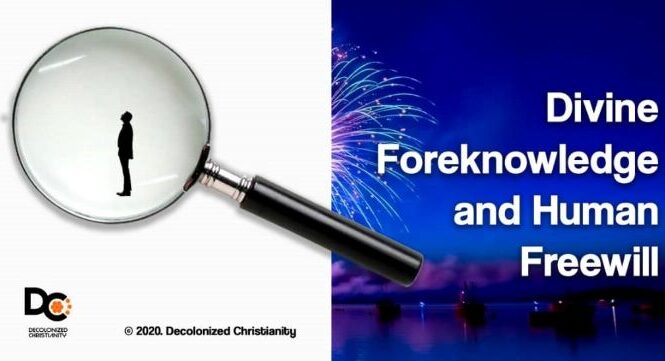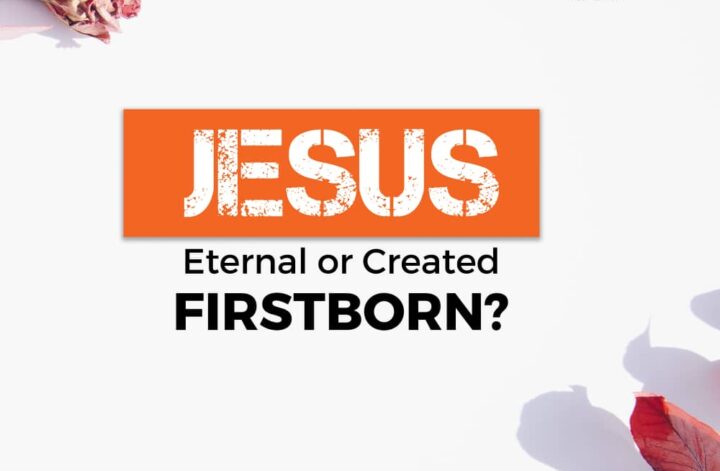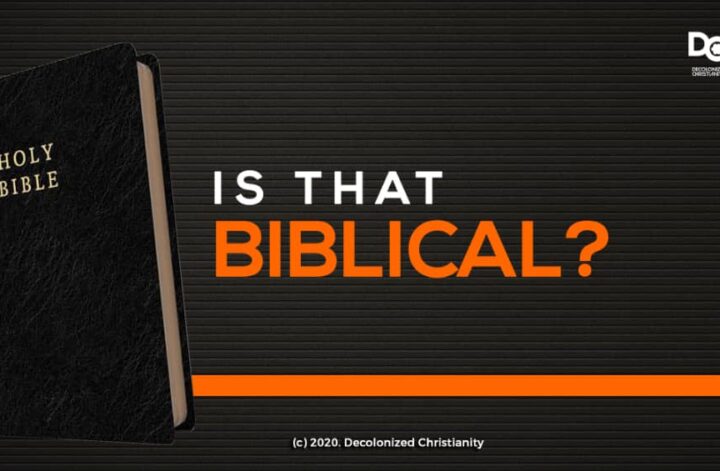In common talks, we may say something like “God can do anything” often because the being we have in mind has superlative qualities. This statement needs to be properly qualified for it to be always true. For instance, we may want to add that he can only do what is logically possible. We would not ask if God can make himself non-existent, for example. In our conception of God, we also believe that he knows all things, including the very next word I will type before I type it. Indeed, he knew me before I was born. The relevant issue that we will pursue in this essay is the problem that arises when we ask, “Could I have not been born given that God knew me (including my being born) before my mother conceived me?” Expressed differently, did my parents have a real role to play in my birth process? The Christian answer one gets for those questions above varies depending on who one asks. In fact, much denominationalism exists in the church precisely because of how people have answered those questions. In European Church history, the debates have continued to rage unabated for centuries. Thankfully, for my purposes, that history will have minimal effects because my focus is not Europe but Africa. Hence, I shall refrain from using registers often associated with this discourse so that no-one may charge me with any misrepresentation.
During the Easter of 2018, I stumbled upon a very useful Social Media post that painted the issue before us in vivid colours. Some individual mockingly posed a question much like the following:
1. If, according to Christianity, Jesus’ death is the best thing that can ever happen to humanity following creation,
2. And Jesus’ death requires a betrayal;
3. And Judas Iscariot must do the betraying;
4. Why then do Christians vilify Judas for bringing about the best thing that can happen to humanity? Should he not at once be elevated to sainthood for his “bravery”?
After reading through some 200 comments on the post, a few things immediately precipitated. It was apparent that the questioner and the many Christians responding to the post presuppose theistic determinism, the view that all human actions (and inactions) were scripted by God through causally related chain of events. Determinism is related to fatalism. In fatalism, things and events are fated to happen, and we cannot do other than we do. Theistic fatalism claims that God has pre-ordained the fates of everyone so that there is nothing that can be done to change those outcomes. The key difference between these views is causality. In one view, one thing directly causes another to happen and then another until the eventual outcome; this view allows for human decisions and choices in the web of causally connected events—but, importantly, these decisions and choices cannot change the outcome necessitated by the starting conditions. In the other view, God fates certain eventual outcomes; there is no causality and there is nothing anyone can do to influence outcomes.
For our purposes, the outcomes of determined and fated events may very well be the same despite different mechanisms. For example, let us take the outcome that Judas will betray Jesus. On a deterministic understanding, God could ensure that Judas’ parents meet and marry near Galilee where Jesus would be born. For this to happen, Judas’ grandparents (and the prior parents all the way to the beginning) would also have to be written into the process since if they were born in, say, faraway modern Australia, it would be difficult to get them to Galilee. Judas’ daddy may have two women that he really wants to marry but ultimately decide on Judas’ mom. (Notice that “ultimately” here is imbued with determinism. Judas’ mom may be marginally taller (or shorter—as there is no accounting for taste) than the other woman, just as Judas’ daddy always preferred, and so forth). That is, Judas’ daddy has a choice of some sort in the matter. Unknown to Judas’ daddy, however, his “taste” and preferences concerning wife candidates were put there by God so he would definitively choose Judas’ mom for a wife. On this view, God would also arrange the other details that will lead to Judas being born exactly when he was and so on. In fatalism, however, the similitude of choice does not quite exist. God would have fated every detail leading to his desired outcomes.
I want to stress at the outset that as philosophical thoughts, these views, determinism and fatalism, are powerful and largely logically coherent. Many heavyweight thinkers, past and present, endorse these ideas. In this article, I will not be critiquing these views per se. I shall only focus on how well (or badly) these views explain the biblical data that we will explore.
Also as mentioned earlier, I write this essay for an African audience. I suspect that regardless of the many things that European Church history can contribute to this subject, the African church leans towards determinism for entirely different reasons. In an earlier essay published on this blog—”Investigating the Yoruba Conception of Destiny” —I showed that the Yoruba cosmology is arguably fatalistic; the worldview can, and often does, encourage fatalistic thinking among the people. Many African states also possess various forms of fatalistic cosmology. Hence, it seems straightforward to me that the thousands of pastors and preachers on the continent will probably naturally engage the Scriptures with deterministic lenses. Many of my favourite Nigerian Christian preachers and singers are grossly guilty of untenable amalgamation of worldviews. Therefore, one of my goals in this essay is to consistently draw attention to popular deterministic conclusions that do not necessarily entail.
The Facebook question addressed earlier is pregnant with a lot of related issues that need careful dissection. Let us quickly scan through these issues as we revisit the question. That Jesus’ death (and his resurrection) is the ultimate hope of humanity is an accurate representation of the Christian position. The assumptions behind the remaining premises are, however, problematic and result from a particular way of understanding key attributes of God that we will investigate shortly. For instance, when it says, “Jesus’ death requires a betrayal,” the questioner is alluding to a specific way of understanding divine foreknowledge; when it says, “Judas Iscariot must do the betraying,” he is alluding to a way of understanding God’s sovereignty and God’s supposed occasional use of people to achieve his goals. As it turns out, the way one wrestles with “divine sovereignty” and “divine foreknowledge” shapes how one will respond to a question like the one under investigation. It is, therefore, proper to begin with a discussion of these attributes of God.




